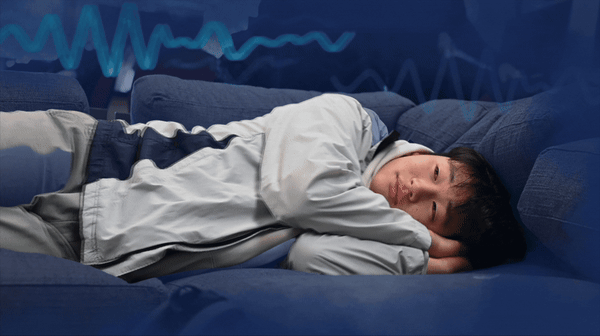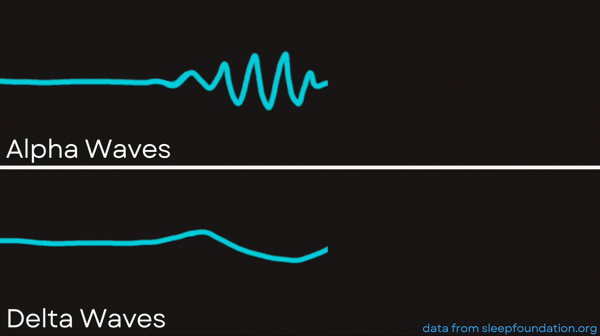
According to the National Library of Medicine, around 23.8% of adolescents suffer from insomnia, the inability to fall or stay asleep. While most people experience occasional sleepless nights, chronic insomnia typically lasts for over three months.
“My insomnia has been with me for as long as I can remember,” senior Jason Li said. “On really bad days, I will wake up maybe eight times. It’s really frustrating because sometimes you can lie in bed for nine hours, but only get five hours of quality sleep.”
Insomnia leads to daytime fatigue and affects both physical and mental well-being, making people more prone to irritability and decreased spatial awareness. In the long term, these sleep disruptions can have detrimental effects on brain development and overall health.
“Our whole body’s health is regulated by sleep,” nurse Jennifer Olson said. “[When you sleep,] the hippocampus and the amygdala are working to cleanse the body, filter information and lay down memory. When you are sleep deprived, you’re not allowing your body to do the pruning that’s necessary, so that can be detrimental to long-term learning.”
One of the core roots of insomnia lies in the body’s natural circadian rhythm, the internal clock that regulates humans’ sense of day and night. The circadian rhythm is partially based on light exposure, which influences the production of melatonin, a hormone that helps signal the body to sleep. Exposure to artificial blue light, particularly at night, can disrupt this rhythm.
“I use my phone before I sleep, so that might be a possible cause of my insomnia,” junior Stanley Chen said. “Usually, it takes me around an hour to an hour and a half to fall asleep. I pretty much work all the way until I sleep, so exposure to the screen for a decent while before I sleep [is a factor].”
Brain waves, or patterns of electrical activity created by neurons, also play a crucial role in sleep quality. Alpha waves, which range from 8 to 13 hertz in frequency, are often produced when the brain is in a relaxed but awake state, like during meditation. Delta waves primarily occur during deep sleep and align with the body’s restorative processes, and they have a lower frequency of 1 to 4 hertz.

Studies have shown that insomnia is associated with increased and more varied alpha wave frequency during the night, where delta waves typically dominate. This reversal of alpha and delta waves prevents the body from entering the deeper stages of sleep, characterized by slow delta waves.
“I can never enter deep sleep, and instead I float around the lighter stages of sleep,” Jason said. “It’s really rare for me to get a night of undisturbed sleep, which happens maybe once every three years. Certain variables and life factors slightly improve or worsen my insomnia, but for the most part, I’ve never been able to overcome this.”
Stanford University professor and founder of health organization Sleep and Brain Dr. Anil Rama explains that while some students may attempt to treat insomnia by taking naps, supplementing sleep throughout the day can come at the detriment of not being able to fall asleep at night. Instead, stimulating alpha and delta waves at their respective times of day can help remedy insomnia.
“Exercise and meditation improve alpha, or foods that are more stimulating,” Dr. Rama said. “Things that promote delta at night are taking a hot, warm shower an hour before you go to bed, and then you’re more likely to go into a deeper sleep.”
However, sleep solutions often come with general advice that do not always take into account individual circumstances. Once sleep habits become ingrained, the body’s circadian rhythm is altered, making it difficult to reset a healthy sleeping pattern.
“Personally, I have to find a good balance between what’s recommended and what actually works in reality for me,” an anonymous source said. “If taking a nap when I get home from work before I cook dinner works, I will do that. All the years I tried staying awake as was suggested never worked for me. I will try new things, but I typically tend to figure out what works best for me and then not beat myself up for not being able to do the recommendations.”
Even with specific sleep strategies, external factors like stress and environmental influences can make sleeping a difficult process. Both positive and negative stressors play a role in triggering insomnia, especially in adolescents.
“Adolescence is a time of great change, both in terms of physiology and in terms of lifestyle and societal expectations,” Dr. Rama said. “It’s also a time, when physiologically, you don’t do things that are necessarily natural, like sitting and staring at a screen for hours a day. Every time you’re doing something like that, you’re shutting and slowing your brain down.”
Despite the pressures of busy schedules and academic demands, prioritizing sleep is crucial for health. Adolescents need between eight to ten hours of sleep per night to function optimally, but many students sacrifice sleep in favor of studying or socializing.
“[Sleep] is really the solution for everything, for decreasing your anxiety, increasing your health and increasing your ability to interact with others for good relationships,” Olson said. “It takes the ability for you to be able to prioritize and make a schedule that includes sufficient sleep so that you are a happy and healthy person.”


















![“[Building nerf blasters] became this outlet of creativity for me that hasn't been matched by anything else. The process [of] making a build complete to your desire is such a painstakingly difficult process, but I've had to learn from [the skills needed from] soldering to proper painting. There's so many different options for everything, if you think about it, it exists. The best part is [that] if it doesn't exist, you can build it yourself," Ishaan Parate said.](https://harkeraquila.com/wp-content/uploads/2022/08/DSC_8149-900x604.jpg)




![“When I came into high school, I was ready to be a follower. But DECA was a game changer for me. It helped me overcome my fear of public speaking, and it's played such a major role in who I've become today. To be able to successfully lead a chapter of 150 students, an officer team and be one of the upperclassmen I once really admired is something I'm [really] proud of,” Anvitha Tummala ('21) said.](https://harkeraquila.com/wp-content/uploads/2021/07/Screen-Shot-2021-07-25-at-9.50.05-AM-900x594.png)







![“I think getting up in the morning and having a sense of purpose [is exciting]. I think without a certain amount of drive, life is kind of obsolete and mundane, and I think having that every single day is what makes each day unique and kind of makes life exciting,” Neymika Jain (12) said.](https://harkeraquila.com/wp-content/uploads/2017/06/Screen-Shot-2017-06-03-at-4.54.16-PM.png)








![“My slogan is ‘slow feet, don’t eat, and I’m hungry.’ You need to run fast to get where you are–you aren't going to get those championships if you aren't fast,” Angel Cervantes (12) said. “I want to do well in school on my tests and in track and win championships for my team. I live by that, [and] I can do that anywhere: in the classroom or on the field.”](https://harkeraquila.com/wp-content/uploads/2018/06/DSC5146-900x601.jpg)
![“[Volleyball has] taught me how to fall correctly, and another thing it taught is that you don’t have to be the best at something to be good at it. If you just hit the ball in a smart way, then it still scores points and you’re good at it. You could be a background player and still make a much bigger impact on the team than you would think,” Anya Gert (’20) said.](https://harkeraquila.com/wp-content/uploads/2020/06/AnnaGert_JinTuan_HoHPhotoEdited-600x900.jpeg)

![“I'm not nearly there yet, but [my confidence has] definitely been getting better since I was pretty shy and timid coming into Harker my freshman year. I know that there's a lot of people that are really confident in what they do, and I really admire them. Everyone's so driven and that has really pushed me to kind of try to find my own place in high school and be more confident,” Alyssa Huang (’20) said.](https://harkeraquila.com/wp-content/uploads/2020/06/AlyssaHuang_EmilyChen_HoHPhoto-900x749.jpeg)




